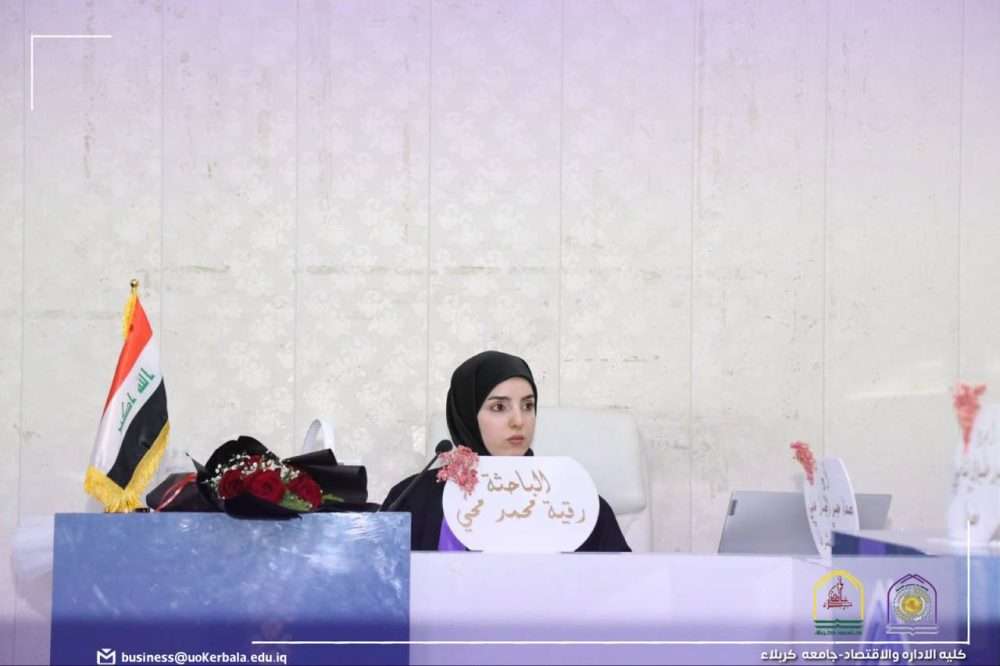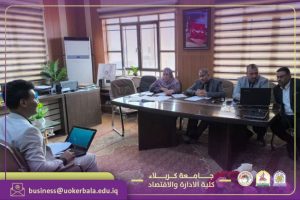The blue economy is a new path in sustainable development – experiences of selected countries with the possibility of benefiting from them in Iraq.
Thesis Submitted to the Council of the College of Administration and
Economics- University of Karbala, which is part of the requirements for
obtaining a master’s degree in economic sciences
By
Ruqaya Muhammad Mohi Al Mayali
Supervised by
Dr. Safaa Abdul Jabbar Ali Al Musawi
Abstract:
Due to the preoccupation of various countries of the world with the issue of rational exploitation of the resources present in water bodies as natural capital through which all countries achieve human welfare and improve their living standards, this study has gained great importance, in addition to being included within the modern development studies that receive global attention to achieve sustainable development through the blue economy. This study has highlighted the sectors of the blue economy, namely (fishing, aquaculture, maritime transport, beach tourism, marine industries, marine biotechnology, water desalination, renewable marine energy), so how can the blue economy be a path to sustainable development? How can it contribute to the development of the economic path of the sample countries? What are the challenges facing the blue economy? These questions were answered by setting the following hypothesis: The blue economy can be an important path in sustainable development through the management and sustainable use of the resources of the seas and oceans, and based on the large resources it contains, especially the selected sample countries, it can also be used to drive the wheel of sustainable development in Iraq, due to its important economic components in the field of the blue economy. The study aimed to clarify the theoretical concepts of both the blue economy and sustainable development and to identify its active sectors. It also aimed to identify the most prominent challenges that hinder the path of the blue economy and to identify some of the experiences of countries around the world in the field of the blue economy for the purpose of benefiting from them in Iraq. The inductive and deductive approaches were adopted and the descriptive and analytical methods were used. A set of conclusions were reached, the most important of which is that the blue economy may be an important path in sustainable development, but it may face some challenges. The blue economy is an economic lever for many countries, especially coastal countries. A set of recommendations were presented, the most important of which were: spreading blue awareness in the world and promoting marine culture in order to improve the situation of our oceans and seas, setting laws and legislation regulating this type of economy and its various sectors, and benefiting from international expertise to protect the environment and blue growth, by deepening ties with international bodies and organizations responsible for protecting the environment. Keywords: Blue economy, sustainable development.





























































